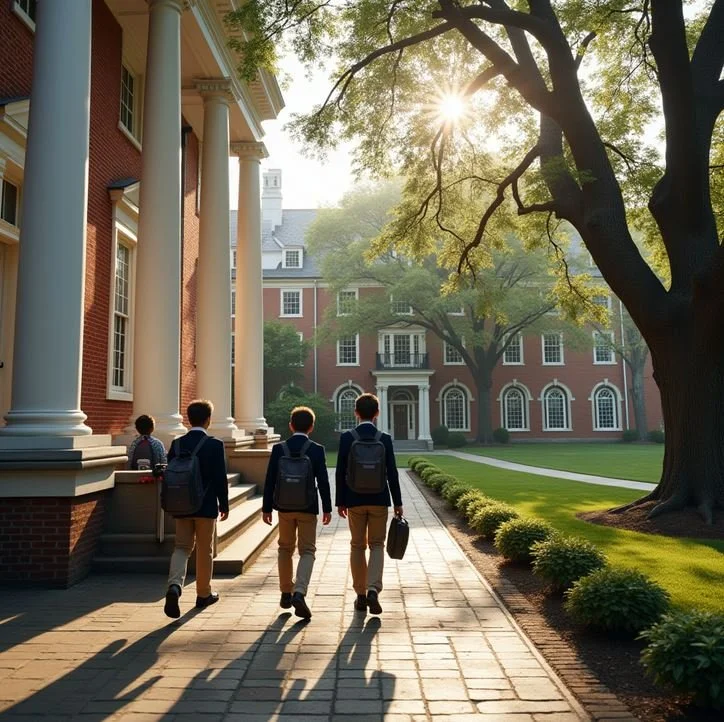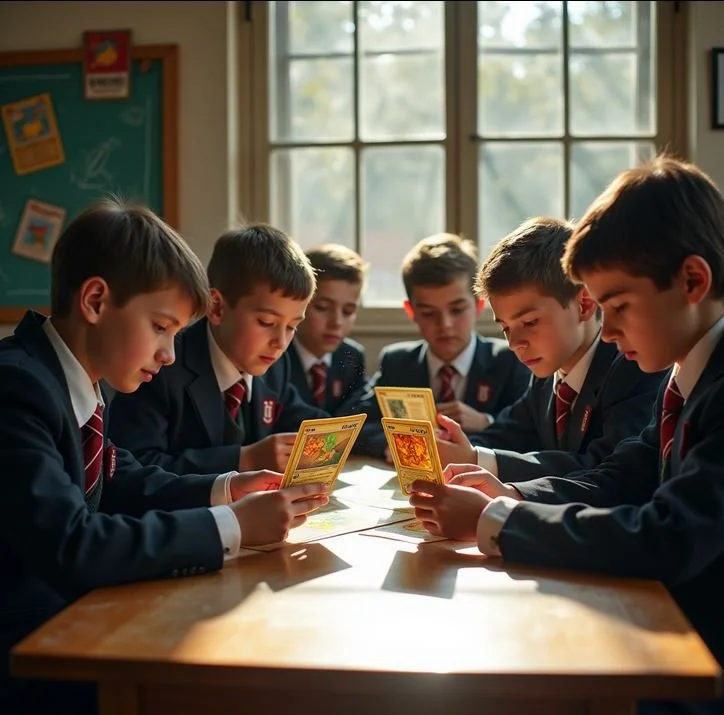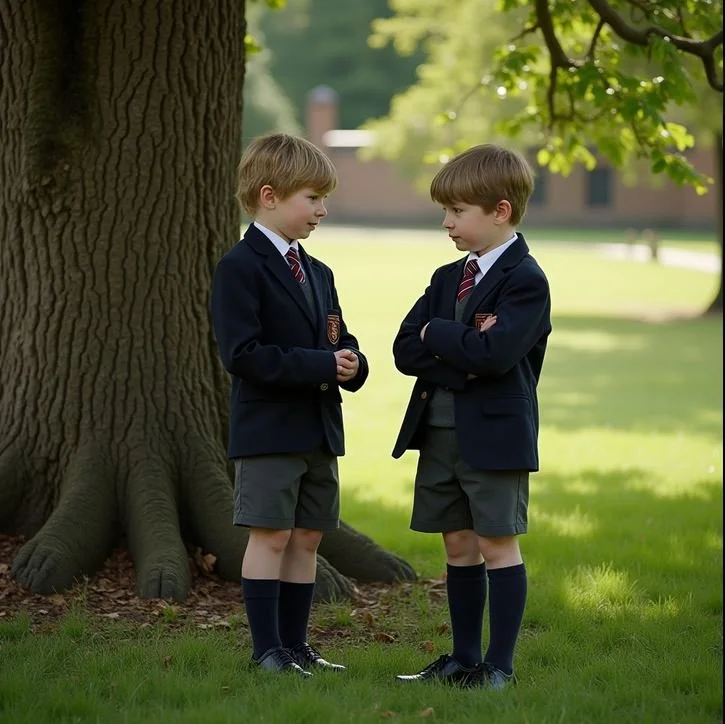Temptation of Drew Barton
The halls of St. Rasso Preparatory School for Boys smelled of lemon polish, old money, and ambition. For eight-year-old Andrew Barton, it was simply home. A legacy student—the third generation of Barton men to walk those polished floors, Drew navigated the subtle social currents with the ease of a native. He wasn’t a star athlete who commanded the fields, nor was he a prodigy who could dismantle a chess grandmaster’s defense before lunch. He was, as his father would say with a clap on the shoulder, “a fortunate young man.”
His solidity found its place with a group of boys cut from a similar cloth. They were the sons of financiers, hedge fund managers, and old-line industrialists. They didn’t play sports; they analyzed team statistics for fun. They didn’t just play trading card games; they speculated on the future market value of a rare holographic Charizard. Their games were simulations of the world their fathers ruled.
Drew was happy here. He was liked. He fit.
The event, like so many things that change a boy’s trajectory, began with something small. A test. Not an academic one, but a social one.
It was young Chip Harrington who presented the opportunity.
Chip’s father was a titan of private equity, a man known for his ruthless, win-at-all-costs ethos. And Chip, eager to emulate, had brought a slice of that world into their fourth-grade classroom: a pristine, first-edition, professionally-graded Charizard card.
It wasn’t just a card; it was a $3,000 asset he’d convinced his nanny to smuggle out from his trust fund’s safety deposit box.
He paraded it before their group at recess, not out of friendship, but to establish dominance.
“My father says true value is recognized by those who can afford it,” he announced, his voice brimming with a condescension far beyond his years.
The other boys murmured with a mix of envy and respect. Drew felt it too—that desire to possess something so clearly superior, so symbolic of status.
He pushed the feeling down. It wasn’t his.
The problem arose two days later.
Chip was in a panic, his face pale. The Charizard was gone. He’d left his blazer hanging on his chair during art class, and the card, which he kept in the inside pocket, had vanished.
A mild uproar ensued. The headmaster was notified. The threat of a room-by-room search loomed. Tension crackled in the air.
It was during this chaos that Spencer, Drew’s closest friend in the group, pulled him aside behind the old oak tree on the quad. Spencer’s father was a mergers and acquisitions lawyer.
“I found it,” Spencer whispered, his eyes gleaming with a strange, excited fear. He subtly opened his Latin textbook. There, tucked between the pages on Roman conquests, was the Charizard. “It was on the floor under Harrington’s desk. He must have dropped it.”
Drew’s heart hammered. “We have to give it back. Right now. They’re about to call everyone’s parents.”
Spencer shook his head, a shrewd, calculating look on his face that was unnervingly adult.
“Hold on. Think. Harrington’s already told everyone it was stolen. If we give it back now, he looks like a fool who just lost it. He’ll be furious we didn’t speak up immediately. He’ll make us look like idiots… or worse, accomplices.”
“But… it’s the truth,” Drew said, his childhood sense of right and wrong still firmly intact.
“The truth is what people believe,” Spencer countered, parroting something he’d undoubtedly heard at his own dinner table.
“Here’s the play. We don’t say a word. Let the search happen. It’ll turn up nothing. Harrington will get in trouble for causing a fuss over something he just lost. His credibility is shot. Then, in a week or two, we ‘find’ it somewhere obvious, like the library. We look like heroes for being so diligent, and he looks like a careless jerk. We win. He loses.”
Drew stared at his friend. The logic was cold, efficient, and utterly merciless. It was a power play. It was a way to humble a bully and elevate themselves, all without lifting a finger. It was deeply, undeniably… tempting.
In that moment, Drew saw the blurred line.
To do the immediately right thing—return the card—was simple, but came with social cost. To do the strategically “smart” thing—Spencer’s plan—was a lie, but it came with social reward. It was a tiny, harmless sin that taught an unholy lesson in leverage and perception.
He looked at Spencer’s eager face, then back toward the school building where a flustered Chip Harrington was being berated by a teacher. The easy, happy path of his childhood forked abruptly before him.
One path was straight, honest, and dull.
The other was crooked, cunning, and exhilarating.
Drew Barton took a deep breath. The scent of ambition in the hallways suddenly smelled a lot more potent.
“Okay,” he said quietly, the word feeling both heavy and weightless as it left his lips. “Okay. We wait.”



